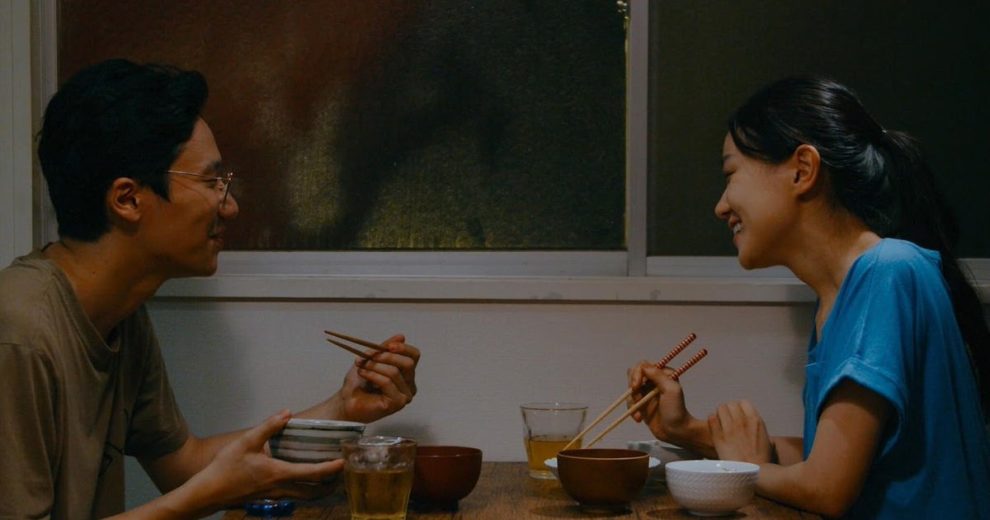It is one of the many recurring themes within Japanese literature and film to expose the hidden layers of the world and of people. With a distinct nod towards the works of writers such as Frank Kafka, Haruki Murakami, arguably the most famous writer from Japan, has made a career of stories revolving around the idea of the dark aspects of a person which we either did not know about or simply chose to ignore for quite some time. In a society as homogenous as the Japanese, you might be inclined to see the appeal of this concept and how it is rooted within the nation's culture. In his feature debut, “Mari and Mari” director Tatsuya Yamanishi follows a similar approach, following the story of a man whose sense of security and stability comes crumbling down on him as the person he loves becomes someone he does not recognize anymore.
Mari and Mari is screening at Japan Cuts
Norio (Kou Maehara) is a casting agent and among his co-workers not only popular, but also admired because of his happy relationship with Mari (Nao). Even tough there may be some skepticism about their routine of long, romantic walks and relaxed dinners, it is certainly a shade of their romance, which still has not lost its touch after one year being together. However, the young man's life is turned upside down as he returns home one day to find a strange woman (Hana Amano), also named Mari, in his apartment. Thinking it is some kind of prank at first, the real Mari is nowhere to be found and does not come back home, while the stranger appears to have no recollection of her past, apart from the certainty she belongs to this apartment and her name is Mari.
Even after several days have gone by, there is still no word from his girlfriend and, despite his best efforts to get rid of her, the “new” Mari returns to the apartment. During Norio's research into her disappearance, he realizes the girl he knew is quite a stranger in her own way, and seems to have prepared for leaving her old life behind. While he is still trying to figure out what has gone wrong, the new “Mari” little by little takes over the role of her predecessor.
Within the landscape of overly long dramas, director Yamanishi deserves credit for the economic use of time to tell his story. Yet the effect is quite noteworthy, as the simple disappearance of Mari is neither explained and we, as the audience, are mostly kept in the dark about her true motifs and what her connection is to the stranger in Norio's apartment. Much like the works of Murakami, as mentioned before, the narrative is not about the event itself, which becomes less and less interesting over time, but about what it means for the characters' relationship and how Norio has perceived it. In a little over 90 minutes, Yamanishi manages to create an analysis of a bond between two people, which perhaps was not as romantic and secure as one of the character thought it was.
One of the most interesting aspects of “Mari and Mari” is what it tells us about the image of women, and how the impression of a loved one is shaped by expectation, perhaps even those defined by our environment. Given his job as a casting agent, Norio's occupation is essentially finding the right woman or man for a certain role, yet he seems to have been unable to do so in his own life, which is one of the many ironies Yamanishi comes back to throughout the movie's duration. In perhaps one of the most interesting sequences, we get an impression of his work routine, with a line of images of people's headshots added together, seemingly highlighting how you might look for something specific while missing the person as a whole in the process.

Considering “Mari and Mari” is Yamanishi's debut effort, there are many noteworthy qualities and interesting aspects, but also a few shortcomings. Apart from a number of annoying logical errors (Why does Norio fail to report Mari missing when he first talks to the police?), there is also a distinct one-sidedness within the narrative, which could have benefited from, for example, adding the view of the “new” Mari played by Hana Amano.
In the end, “Mari and Mari” is a quite well-made debut feature, telling the story of a man finding out the truth about his relationship and the person he loved, along with a few truths about himself in the process. Tatsuya Yamanishi directs an effective and interesting movie, whose few flaws are far outweighed by its positive features and is definitely worth checking out.















